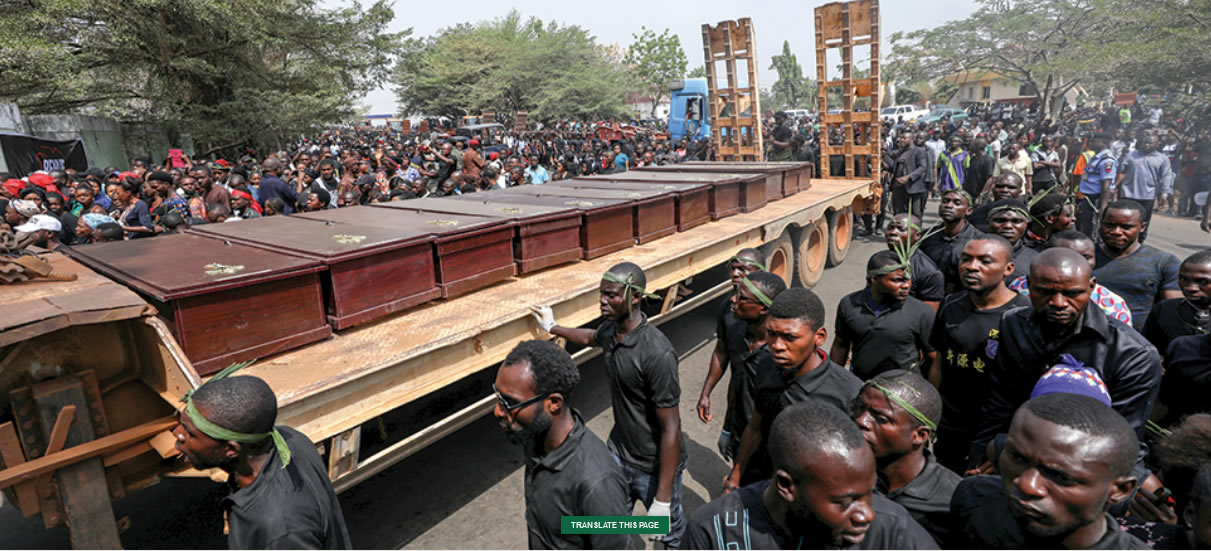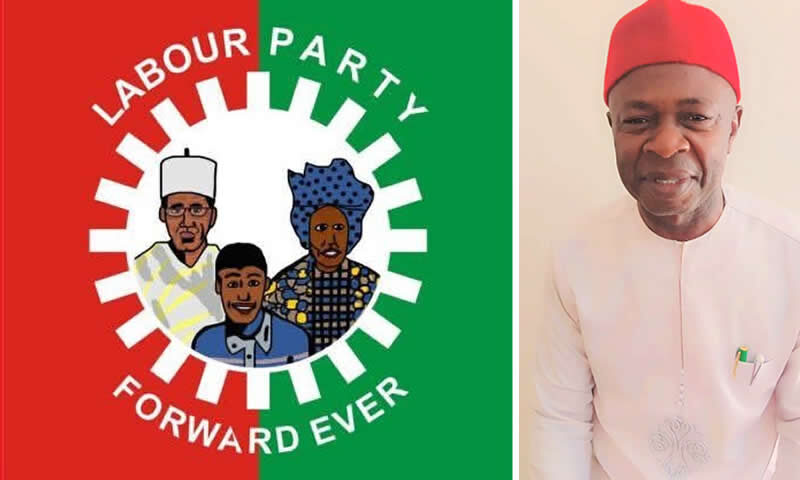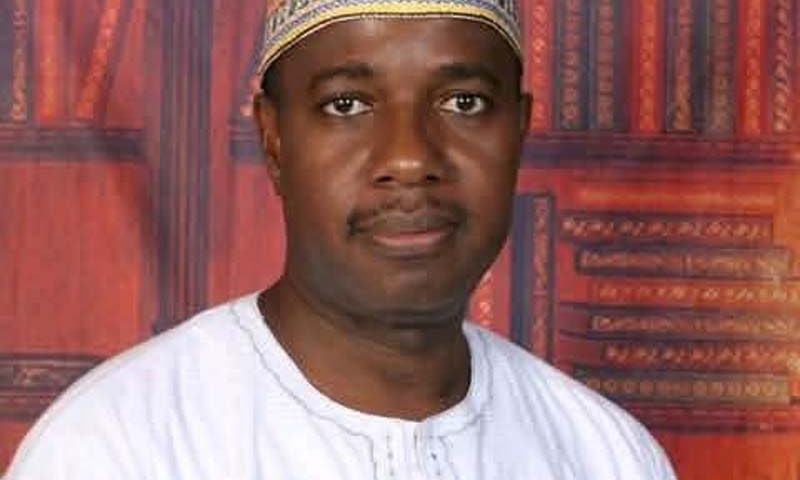Mira Obersteiner, Njoku SaintJerry A. (Edited)
Corruption and Ignorance Affecting Nigeria’s Society, Farmers are scared, Nigerians are devastated, crops are destroyed and people are killed.
Nigerian farmer communities have become a frequent phenomenon; however, the Nigerian Government takes an ineffective stance in dealing with the issue. According to the SBM Intelligence Statistic the pastoral crisis has led to more deaths than the Boko Haram conflict in 2016. Competition for resources such as water for crops and grazing routes for cattle, has led to over 40,000 people being displaced, 2000 people being killed, and a significant drop in food production. This is known as Nigeria’s biggest threat to internal security — the Fulani herdsmen conflict.
Since the emergence of the Muhammadu Buhari administration the attacks by Fulani herdsmen on innocent Nigerian farmers has exacerbated
If the pastoral crisis has resulted in more deaths than Boko Haram, why is the Nigerian Federal Government flexing endless muscles on the protests group agitating for a fair treatment or complete restructure of the Nigeria federal structure or secession in the absence of an agreement to restructure. The corrupt Federal Government in Nigeria and their ignorance of the pastoral crisis has a massive impact on the Nigerian society.

Who are Fulani herdsmen?
Fulani herdsmen raise livestock and supply a bulk of the Nigerian beef consumption. The Islamic nomadic herders move across country in search for suitable pastures, water and grazing sites for their cattle. The cattle business is a private business and contributes to the Nigerians overall economy; as well as fulfils beef supply demand of local consumers by selling some of their stock at designated points during their move across Nigeria.
As the herdsmen move to locate new food resources for their cattle they trespass farmlands, destroying valuables and crops
The pastoral conflict: what is the Fulani herdsmen crisis about?
The pastoral conflict is between Fulani herdsmen and farmers, which has always existed in Nigeria. However, over the last six years the clash has become more violent due to the use of arms as weapons; thousands have been killed and expelled from their homes. The attacks appear to be targeted, indicating that the pastoral conflict is not a simple clash anymore. Since January 2018 most targeted attacks have taken place in the states of Taraba, Adamawa, Benue, Kaduna and Plateau, also known as Nigeria’s Middle Belt.
The escalation of the pastoral conflict is driven by climate change, ethnic differences and the absence of government action. The change in climate puts pressure on everyone who is working in the agricultural sector in Nigeria. One-third of the country’s land mass has been lost to desertification, leading to an increased competition for land and water in Nigeria’s Middle Belt. As a result of lower rainfall in the North of Nigeria, increased desertification of grazing land, acute water scarcity, tsetse-fly infestation, the Fulani herdsmen were forced to move towards Southern farmlands to find clean fresh water and food. As the herdsmen move to locate new food resources for their cattle they trespass farmlands, destroying valuables and crops.
In addition, the pastoral crisis is nurtured by an underlying clash in religious beliefs. Fulani herdsmen are predominately Muslim whilst the farming communities are Christian. In February 2018 Fulani herdsmen attacked two Christian villages and burned down nine Christian churches in Adamawa State. On Twitter it is highlighted that due to the recent targeted attacks on Christian god houses and communities, some Nigerians believe that Fulani herdsmen act out an ethnic-cleansing.
Furthermore, due to the absence of government actions farmers take it upon themselves to defend their farmlands and crops, resulting in violent resistance. Communities have formatted ethnic militia in order to protect themselves from the pastoral crisis. Nigerian States have to create extra-legal security outfits to fight the communities’ militia. Instead of investing resources to prevent the escalation of the clash, the states have to fight against ethnic militia which aim to protect themselves from the conflict. Since the farmers are taken by surprise by the targeted attacks of the Fulani herdsmen, farmers are most of the times overpowered, injured and even killed.
The absence of Nigerian Federal Government actions: Corruption!
The unfortunate thing is that we have a President that not only allows but encourages these criminals. The federal government of Nigeria has emboldened the nomadic terrorists and there is no one single individual of this nomadic terrorists today either in custody or in the court of law answering to their crimes
One interesting point of the pastoral crisis, is the absence of Federal Government actions. According to Amnesty International the Nigerian Federal Government reacts too slow and ineffective to the pastoral violence; hence, remain unable to protect communities. Furthermore, since the government security agencies have not taken any actions against Fulani herdsmen many of their crimes remain unpunished. Consequently, the Nigerian population starts questioning their Federal Government and especially President Muhammadu Buhari.
Human Rights Activist, Mark Adebayo said: “The unfortunate thing is that we have a President that not only allows but encourages these criminals. The federal government of Nigeria has emboldened the nomadic terrorists and there is no one single individual of this nomadic terrorists today either in custody or in the court of law answering to their crimes”

The unfortunate thing is that we have a President that not only allows but encourages these criminals. The federal government of Nigeria has emboldened the nomadic terrorists
Nigeria’s President Buhari does not only share the same ethnicity with the Fulani herdsmen, he also is a patron of the Miyetti Allah Cattle Breeder Association of Nigeria, which is a trade group of mostly Fulani herdsmen. Many people and Nigerian groups such as Family of Worship Center believe that due to President Buhari’s personal involvement in the herdsmen cattle business, the Federal Government is reluctant to act against the pastoral crisis, many Nigerians develop hate against the Federal Government and the president, which they advocate on Twitter leading to the Ban on Twitter by the Buhari government.
As a result of the recent attacks in the Benue state, Kaduna and growing reprisal attacks many Nigerians have formed various protest groups with agitations to separate if the Federal government continue to treat the menace of the Fulani herdsmen crisis with kids gloves.
In addition, not only the general public blames President Buhari for the Fulani herdsmen attack, Femi Fani-Kayode, former Aviation Minister claims that the Fulani herdsmen attacks are the legacy of president Buhari. Fani-Kayode stated: “Fulani terrorists in Benue state removed the eyes, ears and nose of a police officer before slaughtering him. This is the legacy of Buhari and all those that supported and assisted him to come to power.”
Bello Abduallahi Bodejo, President of Miyetti Allah Kautal Hore Socio-Cultural Association states that Fulani herdsmen stand behind President Buhari. Bodejo said: “All of us are behind Buhari; we have seen that they want to destroy the Fulani because of Buhari. We would not allow anybody to intimidate the Federal Government or to take Buhari’s mandate; we would be ready to follow him and fight it.
Interestingly, Buhari’s Senior Special Assistant on Media and Publicity, Garba Shehu, claims that Buhari is determine to end the pastoral crisis and bring an end to the killings. However, according to Bodejo, Nigerian politicians are the ones buying arms for Fulani herdsmen. This information shows that the politicians at the Federal Government support the Fulani herdsmen attacks. Thus, the statement of Buhari’s Senior Special Assistant on Media and Publicity appears to be a lie, highlighting the corruption of the Federal Government.
Pastoral crisis: socio-economic impacts

Furthermore, due to the absence of government actions farmers take it upon themselves to defend their farmlands and crops, resulting in violent resistance.
As a result of the absence and the corruption of government there is one major socio-economic impact on the Nigerian society. The pastoral conflict threatens the nation’s food security, which can lead to scarcity. The farming season is already badly affected in the Benue State of Nigeria. Due to violent pastoral attacks farmers are scared to return to their farms; which means that the farmer won’t grow new crops on the farmlands. Since the Benue State plays a vital role in Nigerians agriculture by providing tomatoes, rice, cotton and maize, this will have drastic consequences on the Nigerian export and import market.
The pastoralists and agriculturalist don’t see the bigger picture. According to the President of the Fulbe Development Association of Nigeria farmers and Fulani herdsmen are dependent on each other; herdsmen provide milk and meat, and farmers produce food. Both parties contribute to the economic growth and development of Nigeria. However, herdsmen and farmers fight each other, destroy land and crops, which leads to food scarcity and more competition. For instance, Farmers rather poison the crops then letting the herdsmen cattle eat it.
Fatai Razaq Adewal, Agricultural Economist, mentioned that the pastoral crisis has potential negative effect on food production. In addition, the food shortage won’t only affect the import and export market, but will also have a direct impact on the end consumer. The food prize inflation will increase drastically and some Nigerian’s might not be able to afford the new food prizes.
Pastoral crisis and the future of Nigeria:
To conclude, the pastoral crisis between the Fulani herdsmen and farmers has always exists. Consequently, the Nigerian public is legitimately questioning the Federal Government in regards to how the crisis has been able to escalate this drastically resulting in thousands of deaths. Since the advent of the President Muhammadu Buhari led Federal Government whom has been accused of providing arms to the Fulani herdsmen, the pastoral crisis has become more violent. Considering that the competition for grazing land, water, food has always existed, by giving one party of the competition arms as weapons will not solve the problem; however, put more pressure on it. The corrupt Federal Government which is providing arms to the herdsmen, is destroying the future of Nigeria. For instance, due to the corruption Nigeria’s food security is threatened. Many farmers are scared to return back to their farms in order to seed new crops; Furthermore, by providing the herdsmen with arms, the Federal Government creates and supports a terrorism army which acts out ethnic-cleansing. As a result of the Federal Governments and President Buhari’s corruption, the government is taking an ineffective stance in dealing with the conflict; hence, making Nigeria an instable country in terms of food security, ethnic clashes and social unrest.






